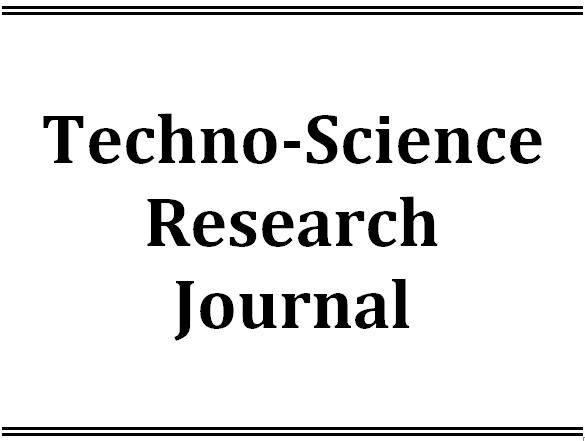Latest Issue
The Negative Experiences of Low-Income Citizen Commute and Their Intentions Toward Public Bus in Phnom Penh
Published: December 31,2025Reliability Study on the Placement of Electric Vehicle Charging Stations in the Distribution Network of Cambodia
Published: December 31,2025Planning For Medium Voltage Distribution Systems Considering Economic And Reliability Aspects
Published: December 31,2025Security Management of Reputation Records in the Self-Sovereign Identity Network for the Trust Enhancement
Published: December 31,2025Effect of Enzyme on Physicochemical and Sensory Characteristics of Black Soy Sauce
Published: December 31,2025Activated Carbon Derived from Cassava Peels (Manihot esculenta) for the Removal of Diclofenac
Published: December 31,2025Impact of Smoking Materials on Smoked Fish Quality and Polycyclic Aromatic Hydrocarbon Contamination
Published: December 31,2025Estimation of rainfall and flooding with remotely-sensed spectral indices in the Mekong Delta region
Published: December 31,2025MODIFIED ZEOLITE AND BENTONITE AS ADSORBENTS OF HEAVY METAL IONS FROM POLLUTED GROUNDWATER IN YOGYAKARTA URBAN AREA, INDONESIA
-
1. ITC
Academic Editor:
Received: January 21,2024 / Revised: / Accepted: January 21,2024 / Available online: June 01,2016
Groundwater quality in Yogyakarta city has become the major concern due to the presence of heavy metals originated from batik home industries, slaughterhouses, and leather factories, especially in shallow groundwater. In response to the above problems, the naturally abundant zeolite and bentonite in Sidomulyo and Bandung areas were respectively sampled along with the metal-containing groundwater in Yogyakarta urban area for batch adsorption experiment. Before put into experiment, the zeolite and bentonite were characteristically investigated by means of XRD, SEM, chemical composition, and physical property analyses. Also, they were thermally activated to improve their qualities in terms of increase in CEC, whereas the groundwater was analyzed for heavy metal concentrations (Cd, Cr, Cu, Fe, Zn) and its physical property. Five logarithmic amounts of this modified zeolite or bentonite were separately and incrementally introduced into the same three solutions of heavy metals. After the experiment, all the solutions were re-analyzed for the rest of heavy metals to figure out the optimum adsorption capacity of zeolite and bentonite. The outcomes of this experiment will be beneficial in enhancing the groundwater quality for consumptions in Yogyakarta city as well as other places in Indonesia, and will also imply the zeolite and bentonite in commercialization.

